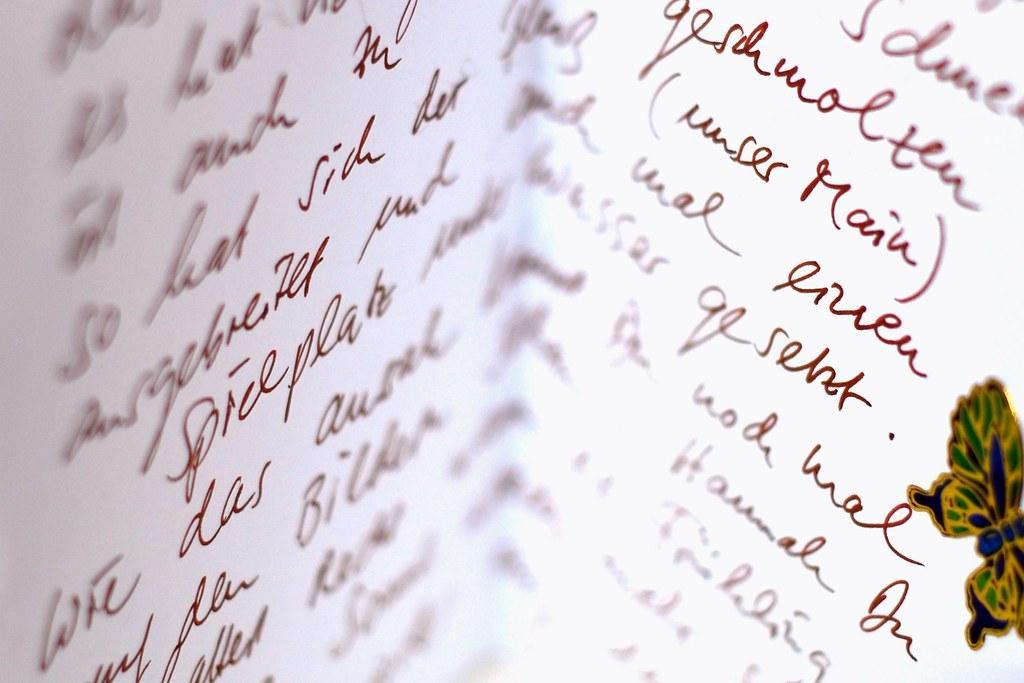
18 minute read
Queen’s Gambit by Sophie
by sophie mo

Advertisement
On the fourteenth of the second lunar moon, war general Meilian is resurrected. It’s a startling event, really—everyone could imagine the utter surprise on the poor handmaiden’s face when she noticed that Meilian stared back at her from her bed in funeral attire (she nearly screamed, by the gods, and almost woke the entire mansion with her cry). And so the rumors start then, barely hours after Meilian wakes up on a mid-autumn afternoon and the doctors find her crawling out of bed. She must be born and favored by the gods to be given a second chance, the servants in her household had whispered. Truly, a blessing such as her has befallen the Tianhua Empire. Meilian finds the statements they make ironic, for she knows she is not sired by the gods, and yet rather cursed with the strength of ten-thousand oxes and hair spun with the silk of spiders. She was not given life to help the misfortune of others, just like her mother did, but instead to take it away—rip it from the throats of wounded soldiers and leave their carcasses for the birds. Meilian was born to slay. She did not pray to the gods because the gods were no such thing. They were merely a myth, a legend, fabricated from the mouths of those who talked too much in the past. The gods were dead, she believed throughout her entire life, when her prayers fell onto deaf ears as her mother wasted away her last years, bedridden. Meilian defied the gods in life, and in death, the gods returned the action, shutting the doors of death in her face, forcing her back into this wretched world where nothing was ever right. Because how dare they. How dare they laugh at her from the heavens as they rejected her from the afterlife, sending her back down to the mortal plane. Meilian was supposed to stay dead. Her life was supposed to end when the blade met her body in the sharp screaming of metal. She wasn’t—She wasn’t supposed to be back in her bed with bandages around her torso. “I will end them,” she seethes in the presence of her advisor, Hongqiu. “I will spite the gods until they have no reason to let me stay here.” Hongqiu, who’s never heard such a thing come out from Meilian’s mouth, is flabbergasted. “Are you alright, miss? You seem quite out of it.” “I am perfectly fine, thank you very much.” Meilian pours herself a cup of tea, only for the boiling liquid to spill out of the pot and onto the table in a mess. She frowns. “Has the emperor said anything about the Lialothra forces on our borders?” “There you go again, talking about news of war the first thing when you wake up,” Hongqiu says dryly, handing her a stack of papers. “You need to go easy on yourself, especially when you’ve just been revived from the dead.”

Meilian wrinkles her nose, taking the papers in one hand and leafing through the reports. “The gods have let me live for another day, and I will make that everyone else’s problem but mine.” “You have too much energy for someone who’s just died.” “Please, Hongqiu, leave the resurrection and death miracle behind. It’s old news. I’m more particularly interested in the advancement of Lialothra squadrons in the outskirts of the northern mountains—Come to think of it, how long did you say I was out for again?”
“Barely two weeks.” “The emperor hasn’t approved a new war general yet, I take it?”
“He wouldn’t dare.” Meilian smiles with all teeth and malice. “Good. I would hate it if my position had been overtaken by some measly corrupted official. So, five weeks, right? Our enemies have advanced just a hundred meters from the capital. In two weeks.” Hongqiu looks somewhat disturbed, fumbling with the hem of her outfit. “The emperor… He has made several grave errors when calculating the advancement of Lialothra forces when you were—uh—sleeping.” Meilian throws the papers onto the wood before her, scoffing at the idiocy of whatever title this “emperor” had bestowed upon himself. He isn’t even fit to rule a district, let alone a whole empire. Meilian’s been through many of his official meetings before; yes, the emperor was intelligent, far beyond those empty-headed advisors of his, but the way he flaunted that knowledge of his led to grave mistakes. Mistakes which Meilian will take advantage of. Ah, yes. She lets out an unconscious grin, because if the gods sent her back to this world, then there was something she had definitely left behind that couldn’t go unresolved in death.
“Hongqiu,” Meilian calls from her seat. As Hongqiu turns around from the shelves of documents, tilting her head in question. she requests, “If you would, please bring me a quill and some paper.” “What for?” Meilian steeples her fingers together and presses them against her lips as a plan formulates at the edges of her mind. “I have a proposal to make.”
Emperor Faddei of the Lialothra Empire, it seems, is a bold man.

He responds to Meilian’s letter within a week, having a hawk carry it back to Tianhua’s war general. The emperor writes his response in elegant calligraphy, his signature scrawled at the bottom of the letter with black ink that bleeds into the heavy parchment. “To think that the Emperor would actually respond.” Hongqiu says curtly while brushing Meilian’s hair, trying to read off the paper in her hands. “Of course he would respond. It’s only proper manners that you respond to the First General of Tianhua especially during wartime.” Meilian smiles to herself, folding the letter in half. “My proposal was accepted, though. Maps to our trade routes and access to our docks in exchange for oversea supplies—”Hongqiu’s fingers stop threading through Meilian’s hair as she lets out an audible gasp. “You can’t be serious. Such an offer—How will you authorize it?” “—You haven’t let me finish yet, my dear advisor,” Meilian passes the letter to Hongqiu, who accepts it. Her nails skim across the edges and corners, opening it up to view the contents within. “As I was saying, maps to our trade routes and access to our docks for both oversea supplies and a whole armada in a week’s time.” “Meilian, what are you—” “I will be able to secure the promise, Hongqiu. Please do not fret over such a trivial matter.” Meilian turns to look her advisor in the eyes, watching as Hongqiu’s eyes widen to the shape of saucers when she reaches the end of the letter. “We have two week’s time to prepare. My men are loyal to me, and as such I am not concerned with how much manpower I can wield. What I do need, though, is your willingness to compromise. You are a woman of peace and prosperity, and I am well aware that you dislike war. The Tianhua Emperor has taken with him your village and your family, wherein you still hold a grudge against him for doing so.” Her advisor is silent, but her eyes flicker to meet Meilian’s, something along the lines of unease buried within. Hongqiu opens her mouth, closes it, then opens it again before heaving out a sigh. “I will go with you wherever, Meilian. I will aid you with my very best in this endeavor of yours.” And so, Meilian picks up her quill again, dipping it in the blackest of ink, and writes down her final response to Emperor Faddei a week before she is to wage war. The following days after she sends the letter to the monarch of Lialothra is filled with planning in the dead of night by the light of a single candle, instructing Meilian’s fleet to follow her plans and her backup ones as well when the time comes (and, as predicted, they are well aware of where their loyalties lie). Even when the Emperor himself calls forth Meilian for advice about the receding Lialothrian forces along their borders, she does not give him the pleasure of looking past her mask nor her real intentions when she advises him to pull back their own forces for now. Meilian does not betray anything, and in return, the last night of the second week falls upon her shoulders peacefully. “Are you sure you can dethrone the Emperor with such a small army?” Hongqiu whispers into Meilian’s ear as she throws her armor over her head. “I’ve told you before,” Meilian says with a hint of amusement, knowing that Hongqiu will catch onto her words after she completes her statement, “that I don’t plan on using brute force to knock the king off the chessboard. This will be a game of chess, and I will treat it as such.” Sure enough, Hongqiu goes rigid, blinking rapidly, and Meilian nearly laughs at how long it took her advisor to realize her real plan. It is true that her method is informal,

that it isn’t the traditional way of challenging the current Emperor for the throne, but what else is she supposed to do? Yes, her family hails from a respectful lineage, and using violence to conquer the head of the kingdom will surely tarnish their reputation—so that idea is brushed to the side. “Either way, it’s time to depart. I will gather my army. Emperor
Faddei’s forces should be arriving in a couple of hours.” Meilian swings a leg over her horse who stomps its hooves on the rain-drenched cobblestone roads. Hongqiu follows close behind with Meilian’s legion of warriors, and they make their way to the palace hidden behind the guise of a magnificent waterfall painted with the reflection of stars against the dark backdrop of night. There is no time to be nervous, for when Meilian arrives at the palace, the Emperor is already out before the sun rises from the mountains, his guards trailing after his every move. “I see you have caught word of my challenge?” Meilian speaks first, holding her head high with dignity. She knows the Emperor is not one to be cowardly and back down from such an offer, especially with his title on the line. The war general beckons Hongqiu forward, instructing her to place the chessboard in the middle of the bridge parting the two parties. “Will you accept my request? If you decline, I will clean the bridge with your blood and seize the throne with violence, but seeing as so with our enemies right outside our city, I’d think you wouldn’t want that to happen, yes? Wouldn’t you agree that a simple game of chess settles things faster?”
The Emperor, for all he’s worth, looks nerved, hands fidgeting, fingers twitching at his side. Meilian knows he would not be able to charge straight into battle; he is too faint of “Your audacity astounds me, First War General.” The Emperor kneels in front of the chess table, hands placed on his lap. Meilian lets out a hum as she reciprocates the action, gesturing with a flick of her wrist for the Emperor to start his move first. The match starts in a flourish, the Emperor seeming to choose his moves carefully, hesitantly. A wobbly smile spreads across his face when he manages to take Meilian’s knight, but that’s the only piece she ever lets him take. The Emperor slips then, when Meilian pushes back against his chess pieces in retaliation for her knight. He becomes panicked, perspiration gathering on his forehead as Meilian remains stoic, expression stilled into a poker face. The Emperor becomes desperate when Meilian takes his queen, and he moves back to protect the king—it's the first mistake he makes. He leaves open spaces he does not see in the heat of the match, and Meilian uses it to her advantage, knocking down another one of his bishops. The second and last mistake he makes is grievous, leaving his king wide open. Meilian’s lips twist into a sinister grin when she takes his king, leaving the rest of his pieces devoid of a monarch. “Checkmate.” Meilian brushes her hands off on her armor, standing up. “You lose.” The Emperor’s hands hover over his pieces, eyes wide and disbelief in his voice when he tries to stammer something in denial. “H-How—? This— This isn’t fair—” “Nothing is fair in war, your Highness.” Meilian waves a hand at her army, which surges forward upon her command. “Take him away.”
The Emperor visibly shakes with rage, his face turning redder by the second. “You don’t have the authority,” he spits. “My forces outnumber that of yours.” “I wouldn’t be so sure of that.” And on cue, as Meilian had planned from the beginning, Emperor Faddei’s armada charges from the city roads below, flooding the front of the bridge and placing themselves behind the war general. “I beg your pardon? Who outnumbers who now?”

The Emperor, he—well—he has nothing more to say other than incoherent words that he isn’t able to put together to turn into a proper sentence. His mouth hangs open, and he’s too surprised to argue or fight against Faddei’s soldiers when they take him away from the bridge. There’s only silence after—a tranquility that is only disrupted by the rushing of the waterfall and the early birds that sing their little tunes in the trees high above. Meilian smiles in satisfaction as she makes her way into the palace, beginning to feel the weight of the crown that would be placed on her head soon enough.
And as the night lifts from the mountains’ shoulders, the dawn rises with a new sovereign of the Tianhua Empire.
Who outnumbers who now?
of heart for the sight of brutality, so he instead has his generals do the dirty work for him.
If anyone was tasked with writing an autobiography for every human being on Earth, they would forget Nicholas Morello before the ink on the story of his life had even dried. He was a lanky fifteen year old, born only a few years before the twenty first century, and named by his parents after a childhood friend. And while he did grow from a chubby baby to a tall teenager, he did not grow into greatness as his parents had hoped. Despite having played a variety of sports in his life, he had never accomplished anything of note. He sat smack dab in the middle of most of his classes, and to date no teacher had ever remembered his name for either notorious or excellent deeds. As any high schooler would, he had started a club, though not even his mother or father could name it. And despite this lifetime of obscurity, and in some cases mediocrity, Nicholas Morello knew that anything he wanted in life would be granted to him, for he had been blessed with miracles. At this point, it is a reasonable assumption to make that fairies or wizards or some other sort of nonsense is going to fill these next few pages. Nicholas himself had believed as much in his youth, and would have continued believing so if he had not been in the right place at the right time, and heard a conversation he was never meant to hear. The story began on a cold winter day when Nick (as he will be referred to, because Nicholas is a whopping eight letters) was nine years old, and accidentally stumbled onto a figurative gold mine. When most high schoolers reminisce about elementary school, they remember a paradise free of stress and the happiest time of their life. When most elementary schoolers think about their experience, they feel that they are already in the thick of the rat race. Nick was no exception to this experience, and had tragically found himself at the extreme bottom of his school’s social hierarchy with a few select friends. While he could handle bullying, one day he was the victim of a particularly harsh joke about his mother. This slam was so brutal, and uttered so publically, it almost drove the poor boy to tears.

for he had been blessed with miracles
He had run home and locked himself in his room, despite his parents and others repeatedly trying to coax him out. And right before he went to sleep, he decided to write a letter and put it underneath his pillow case. If there was a tooth fairy to collect teeth from under one’s bed when they fell out, surely other fairies would check his note as well. He had explained what happened, and added frowny faces where he believed they were appropriate. And with all the subtlety of a ten year old, he had asked for Edward Summers to receive a due punishment for his unkind words. He slept peacefully that night, not knowing he had set events in motion that would be critical to the rest of his life. In less than a week, both of Edward’s parents lost their jobs, and his family was forced to move to an area with a lower cost of living. When he had heard the news, Nick had initially been elated, then confused. He had not expected his wish to come to fruition this quickly or effectively. Never one to let an opportunity go to waste, he wrote a similar note that day about how a large amount of his candy had gone missing, although the culprit was his stomach. When he awoke the next morning, he saw the note had been looked at, but no mountain of candy appeared for another month. He had tried again and again, with different
IT’S A MIRACLE!
problems and asking for varying levels of justice. Soon, a common pattern emerged; the fairies only fulfilled his wishes when Nick was hurt or threatened. While this initially made him suspect his parents, it was highly unlikely that they would be able to do half the things required. Or so he believed, until he accidentally ended up listening in on one of their conversations. The reason he was even below his bed that day was because he got stuck trying to find an action figure, and did not have the will to get out. Before he could muster up that dedication, he heard footsteps coming into his room. His mother walked in and lifted his pillow, to read his note, he realized. “Anything important? Or just some missing candy?” his father asked from the doorway. “I don’t know, Frank. That poor boy whose parents lost his job is suffering right now, and I don’t want a repeat. Nick has to learn to fight his own battles.” Even though he was under the bed with no visibility, Nick could see his father’s eyebrows rise at his mother’s statement. Even Nick was tempted to jump out and ask what was happening, but caution won out. “What is it?” “Nick wrote about his English teacher that he thinks is trying to fail him. The bald one.” “It’s a teacher. They’re trying to fail everyone, not just him,” Dad snorted, and turned back. Mother soon followed, leaving a very confused Nick to bang his head on the bottom of his bed frame. It didn’t take him long to piece together the long work trips and considerable luxury he lived in along with the fact that his parents were trying to make his wishes come through. Nick, for his part, never tried to interfere in anything he believed was not his business. He may have been exceptionally dull, but it also meant he was willing to remain ignorant for the system that was clearly benefiting him. Of course, as he grew older, Nick had to keep adapting to his age and making sure his parents knew what he wanted. In middle school, he transitioned to keeping a diary filled with personal problems. In high school, he had frequent calls with a “therapist,” and these calls were loud enough for anybody in his house to hear them. At times, he had doubts about the questionable actions that would help him. He knew that people had gotten unfairly fired, but to the extent of his knowledge no person had ever died. Of course, the longer he thought about it, the more clear it became to him that he did not want the answer to that question at all. He had no particular skills or hobbies or talents, and if not for his parents, he would have nothing in life. So when he opened a letter from MIT, congratulating him for being accepted, his mother shouted “It’s a miracle!” He had only grinned and nodded as she left the room, only to put a final note under his pillowcase.
by aarya morgaonkar











